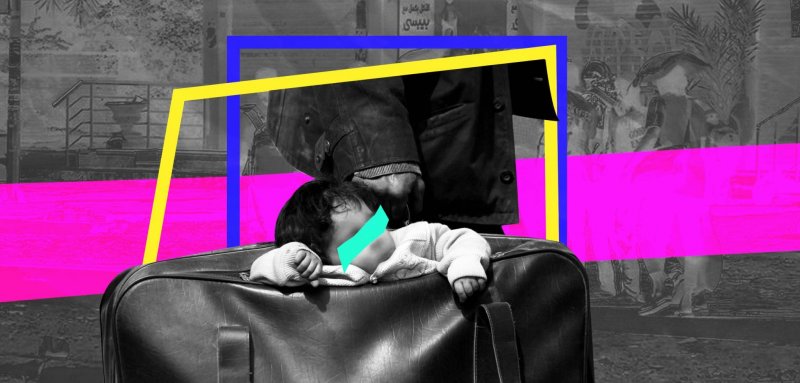Under the flames of war in Khartoum, Sudanese citizens on Twitter exchanged a set of tips and pointers to help the displaced and those fleeing the gunfire. The tweets agreed on a list of items that travelers must carry with them if they want to safely leave the capital, or even the entire country.
The latest "survival guide" or list of tips such as this one had been widely circulated during what is known – or was known – as the Arab Spring. Young protesters shared and circulated a semi-unified list: lightweight shoes suitable for quick running, a cola bottle to wash the face from tear gas, an empty wallet except for the ID card and some cash, the phone number of a human rights lawyer, and it would be preferable to have some knowledge of the city's alleys to blend in if necessary.
Under the flames of war in Khartoum, people on Twitter exchanged a set of tips and pointers to help those fleeing the gunfire, agreeing on a list of items travelers must carry with them if they want to safely leave the capital, or even the entire country
Sudan – paradoxically – was one of the last countries to join the Arab Spring, perhaps because it had witnessed its own version of it multiple times in the past, and the list of protest necessities wasn't any different in the Sudanese Spring between 2018 and 2019. However, in the recent war that broke out in Khartoum in mid-April, the list was different. Sudanese people were advised to carry the following:
- An amount of money, preferably in dollars.
- Travel papers/passports that are still valid or haven't expired too long ago.
- Home ownership documents to claim upon your return.
- Bottles of water and some food "because you never know how long the journey will be".
The last "survival guide" was widely circulated during the Arab Spring. Protesters shared a semi-unified list of tips: lightweight shoes suitable for running, cola to wash the face from tear gas, ID card, some cash, and the number of a human rights lawyer
Just as the "protest list" was suitable for any country during the Arab Spring, or even countries around the world, this recent "Sudanese list", with a little contemplation, may also be useful for many citizens across most Arab countries. In these countries, as soon as one capital ignites, another follows, and as soon as one conflict erupts, it is copied by another in a neighboring or distant country. And as refugees flee, they are joined by displaced people from neighboring nationalities. It is no longer surprising to see Syrian refugees helping their Sudanese brothers on their journey to Egypt or find both of them benefiting from the advice of a Palestinian refugee regarding border crossings and airports.
When Sudan was caught ablaze in its most recent crisis, Egyptians circulated a satirical, yet tragically accurate, comic map depicting Egyptian borders ablaze from all directions – Palestine, Libya, and finally Sudan, leaving only the Mediterranean sea in the north, with its boats, migrants, drowned victims, and tragedies.
This "blazing map" depicting most Arab countries is a map of post-independence state decline, where colonial structures were demolished but efforts to build modern structures have failed, and they're moving further away from success with each passing day
This "blazing map", with only a few changes, can be seen in every Arab region, from southern Yemen to northern Iraq and Syria, from the Libyan divide to Tunisia and the "dispute" in the land of Maghreb. It is a map of post-independence state decline, where colonial structures were demolished but efforts to construct modern structures in place have failed, and they are moving further away from success with each passing day.
So who can say that a citizen in Egypt or Lebanon, for example, amid economic crises and currency devaluation, doesn't need to always keep "an amount of money in dollars" as specifically advised in the Sudanese 'survival guide'? Who can argue that Arab citizens, sooner or later, due to politics, conflicts, or economic downturns, unemployment, and frustration, should not always keep a valid passport at hand, ready for immediate departure should the opportunity or means arise? Who can say that a "survival kit", consisting of water, food, papers, documents, and medical supplies should not be kept in a state of readiness, in case of the outbreak of armed conflicts, popular protests, or even natural disasters, where health facilities are not usually prepared or equipped to handle the crisis?
The Arab dictionary defines "gear and equipment" ("العدة والعتاد") as what is prepared for war, in terms of machines, weapons, and tools. Who said that the contemporary Arab citizen isn't actually living in a state of war, or that it's simply lurking in shadows, ready to ignite at any moment?
* The views and opinions expressed in this article are those of the author’s and do not necessarily reflect the official policy or position of Raseef22
Raseef22 is a not for profit entity. Our focus is on quality journalism. Every contribution to the NasRaseef membership goes directly towards journalism production. We stand independent, not accepting corporate sponsorships, sponsored content or political funding.
Support our mission to keep Raseef22 available to all readers by clicking here!
Interested in writing with us? Check our pitch process here!



